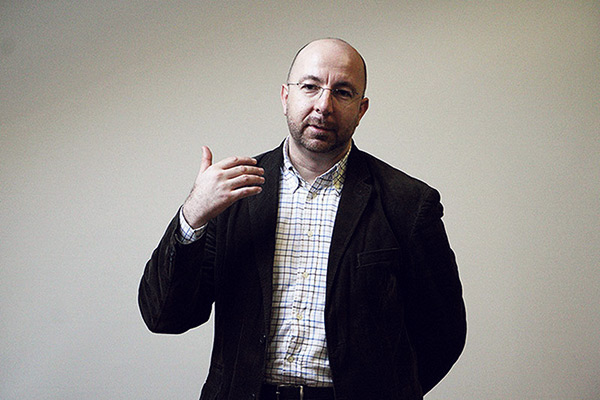AP protests ruling against reporter over Chernobyl story
MOSCOW (AP) — The Supreme Court of Belarus on Thursday upheld a lower court decision ordering The Associated Press' Minsk correspondent to write a letter to AP management denying facts in a story last year. AP is protesting the ruling against reporter Yuras Karmanau, saying it stands behind the accuracy of his story.

«The AP continues to disagree with the decision of the Belarus economic court and will not accept as truthful the statements that Mr. Karmanau is being ordered to deliver,» said Ian Phillips, the AP’s vice president for international news. «AP unreservedly stands behind Mr. Karmanau and the accuracy of his reporting.»
The April 25, 2016, story examined consequences of the Chernobyl nuclear power plant explosion in Ukraine 30 years earlier. Radioactive fallout contaminated a large swath of Belarus; about 10 percent of the country was declared a zone unfit for human habitation.
Karmanau visited a dairy farm just outside that zone and obtained a milk sample. Testing by Belarus’s state-run Minsk Center of Hygiene and Epidemiology found the radioactive isotope Strontium-90 in the milk sample at a concentration 10 times higher than Belarusian law allows.
The state-controlled Milkavita dairy products plant, whose supply chain includes that farm’s milk, sued Karmanau on the grounds that his reporting damaged the company’s reputation. The company did not present evidence of the alleged damage. Dairy products are a major export for the economically troubled country.
The suit was heard in a lower court, which denied Karmanau’s motions to introduce evidence from the laboratory test or show how the sample was collected. That court also prevented him from calling expert witnesses to testify.
He appealed the conviction to the Supreme Court, which on Thursday ruled that he must execute the lower court’s order. Another appeal option is possible, but such strategies are rarely accepted.
The ruling means Karmanau must pay Milkavita’s court costs and follow the lower court’s direction to write a letter to AP management in New York saying that the laboratory test results «do not correspond with reality.»
Court Declares Journalist Wrong, Orders to Refute Nuclear Milk Report
Expert Testifies the Radiation Tests Were Incorrect
Dairy Company Sues AP Journalist for Report about Radioactive Milk (Upd)
AP Report about Chernobyl Sparks Denials and Allegations of Provocation
 @bajmedia
@bajmedia
